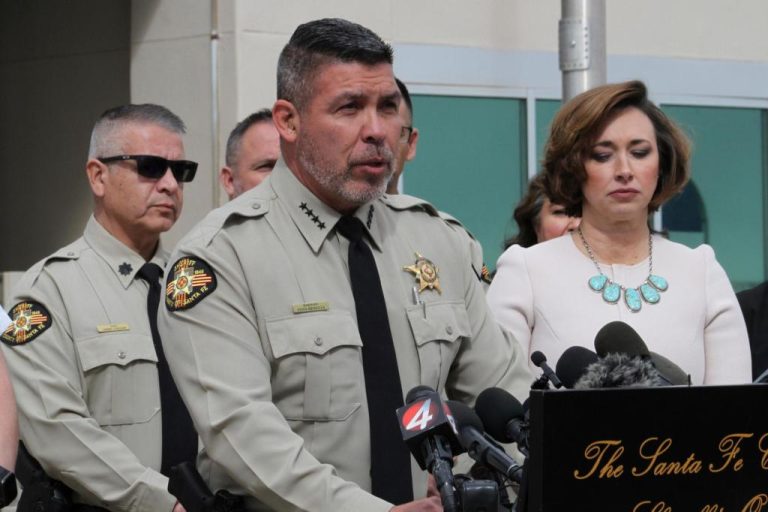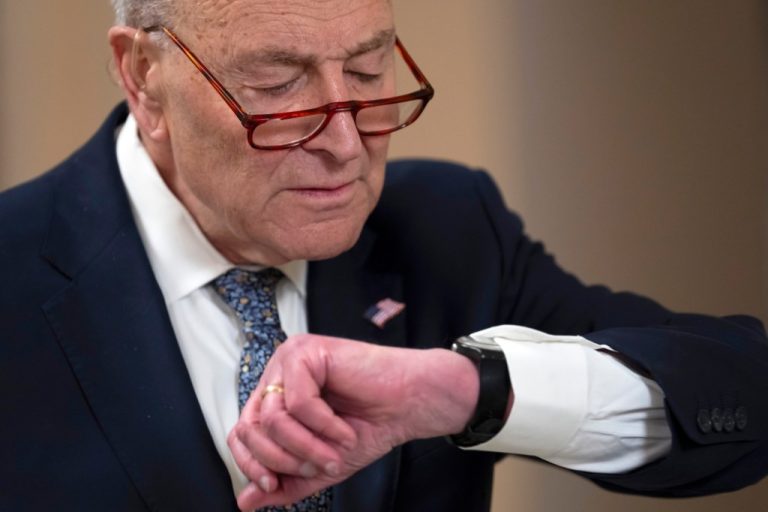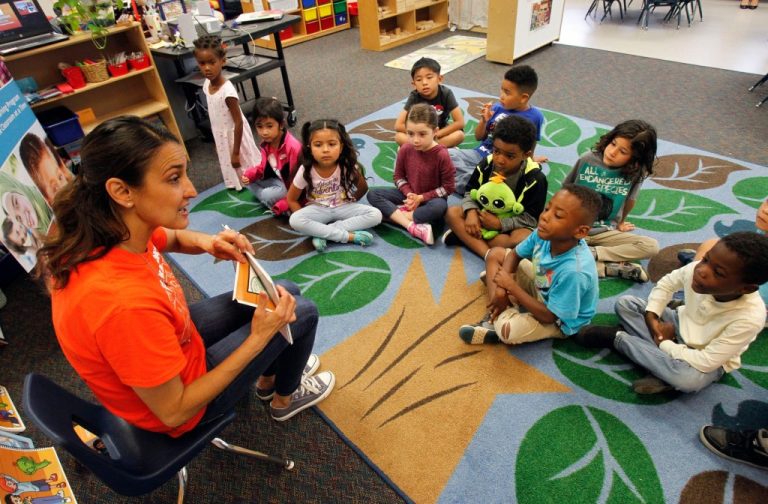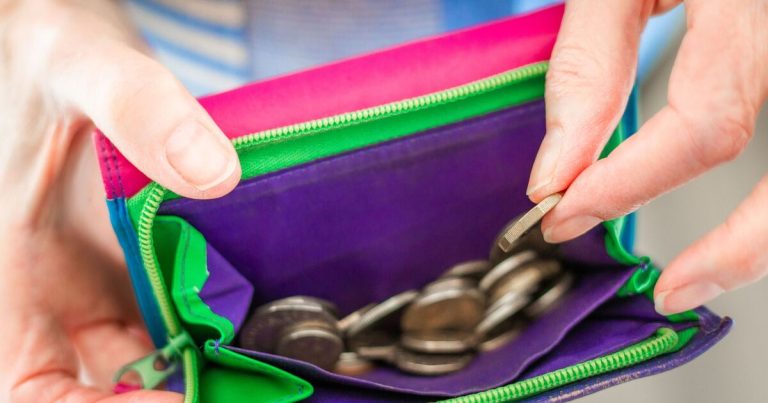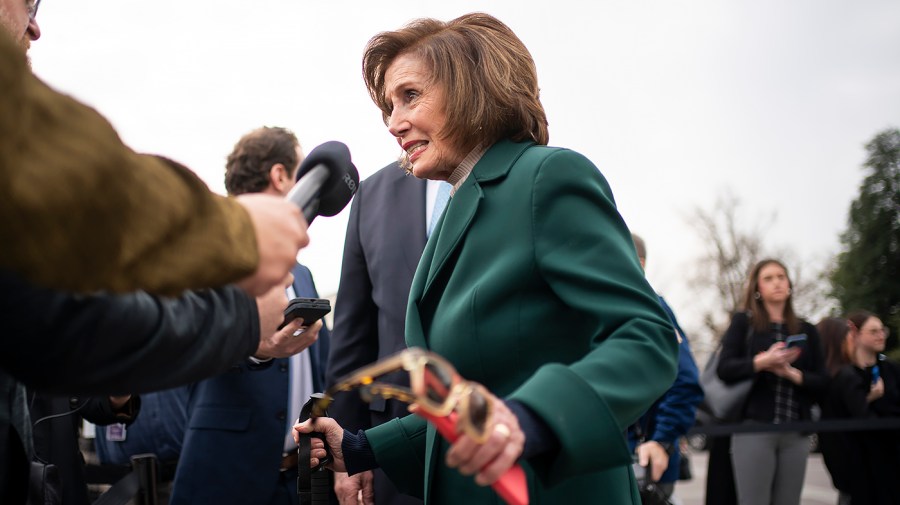
Matthew Desmond needed answers. The question of how the United States, the world’s wealthiest country, could simultaneously abide so much poverty (at a rate of between 11 and 12 percent in 2022, according to the U.S Census Bureau), was one that continued to gnaw at him as he searched for a way to respond.
In 2016, the Princeton University sociologist wrote “Evicted: Poverty and Profit in the American City,” sharing years of research on the connections between evictions and housing policy, to poverty (which earned the book a Pulitzer Prize). His latest book, “Poverty, by America” goes further in attempting to nail down why this problem persists in a country of such stark affluence.
“The question of why there’s so much poverty in America has always been very motivating for me and confusing to me,” he said in a recent phone interview. He grew up poor, his family lost their home to foreclosure when he was in college at Arizona State University, and he worked multiple jobs as a college student (Starbucks, telemarketer, wildland firefighter). He was spending time with people who were homeless near the university, while also seeing people around him on campus with an abundance of resources. “I think that was a time where I felt that the story that I was told about my country, like in my church and from my Boy Scout troop, were not comporting with the story that I was learning in those classes. I think that added to this mission that I’ve been on since.” He’ll talk about this mission and his anti-poverty work as the featured guest in UC San Diego’s Helen Edison Lecture Series on Thursday.
Desmond, professor of sociology and founding director of The Eviction Lab at Princeton, is also a contributing writer for The New York Times Magazine and a previous MacArthur fellow (also known as “the genius grant”). He took some time to talk about his work to find answers and end poverty, and what San Diegans can do to become poverty abolitionists. (This interview has been edited for length and clarity. )
Q: What kinds of questions were left unanswered for you in “Evicted” that you were looking to find in “Poverty”?
A: I think that when I researched “Evicted,” I saw a kind of poverty that I’d never seen or experienced before, a really deep poverty. I saw a grandma in the trailer park that had been living without heat in the winter, living under blankets all winter long in Wisconsin. I remember this one eviction I was on where I was with the sheriff’s squad, and they knocked on the door to evict a 14-year-old girl with these brilliant gray eyes opened the door and there were just kids living in the house. There were no adults, and they evicted the kids. It was this cold, rainy day and someone called social services, and the landlord drilled a new lock, and we went to the next eviction. I think seeing those things, those aspects of American life, works its way into me in a way that the imprints were still very much felt after “Evicted.” I also felt like I didn’t know the answer to this one haunting question about why there’s so much poverty. Like, if someone stopped me on the street and said, ‘Matt, why is there so much poverty?’ what would I say? I felt a little embarrassed, I guess, or convicted that I didn’t have a fully fleshed answer to that. It’s kind of like [Toni] Morrison said that ‘If there’s a book you want to read, but it hasn’t been written yet, then you must write it.’ I felt like I needed to get this out of my system, even for myself, and on paper about why there’s so much desperation in this land of money and how can we finally end poverty?
Q: In “Poverty,” you talk about a version of government welfare that comes in the form of tax breaks to people who are in the least financial need of those tax breaks, and how that allows people to see themselves differently from people who are poor and receiving government assistance in a different form. How much of this understanding of poverty, and the work to end it, requires a much larger shift in American culture away from an individualistic point of view, to a communal one? And do you think there’s an ability to convince people who have tended to frame poverty as an individual, personal problem?
A: I think the conceit of this book, and I believe this conceit, is that a lot more of us are connected to the problem of poverty than we think. That means we’re connected to the solutions and I deeply, deeply believe that many of us are contributing to poverty in America in ways that often, we do not recognize. I believe that that recognition can change the political will … I think we can. I mean, I wouldn’t have written this book if I didn’t think that. I think that there is actually a real hunger for this message. It’s a message that’s found not only in my book, but pockets of community organizing in history. [Martin Luther] King said we’re all connected in this web of interconnection, and he was right, so I think that you’re framing the individual and the communal; I guess I would frame like, ‘Does my gain come at someone else’s expense?’ It’s not always the case that that’s true, but in America, it is true that a lot of us are contributing to poverty in ways that we don’t fully recognize, and getting us to divest from that and recognizing our connection to the problem and the connection to the solution, I do think there’s a real power there. I think that there’s a real opportunity there. I think there are a lot of Americans across the class spectrum that want a different country. I’m feeling this on the road, talking to folks about this book, but also just looking at the numbers. Most Republicans and most Democrats now think the minimum wage is too low, think the rich aren’t paying their fair share in taxes, believe that poverty is the result of unfair circumstances and not individual failing. Things are shifting, things are moving, so I do think that the old tropes and myths of poverty are slowly dying and now it’s kind of up to us to write a new story.
Q: In an interview with Princeton University about the book, you said that you aren’t making an argument for redistribution, but I wonder why not? Why isn’t that the argument, and what do you see is the difference between that redistribution and a recommitment to equal opportunity?
A: I think the difference is about how those words make people feel. I think using the term “redistribution” often, it literally means taking from someone and redistributing that thing. I think that frames the movement of poverty abolition as a taking, as the government reaching its long hand into your pocket. I think that what the government is doing, in actuality, is protecting a lot of riches and fortunes, and they are giving a lot to people who have plenty already. Then, we are spinning this story that we can’t afford to do more, so what I think we need to do is bring our welfare state into balance, to make sure that families at the top 20 percent of the income distribution are not getting more than families at the bottom, which they are now, from the government. I think that bringing that into balance is something that I think is part of the democratic movement. I think it’s more legible to people. It doesn’t really make a lot of sense that someone who’s a homeowner can take out a big tax benefit for owning a $750,000 home when we have over a million school kids today who are homeless, right? I think that a lot of readers can be like, ‘That’s not the country I want to live in.’
I’m a writer, I’m in the business of words and phrases and language and the effect that has on people, and I think this kind of approach, to me, feels a little more legible and not as scary, I guess. I think it also gives you the sense of where the problem is stemming from; it’s not just the fact that some people have more and some people have less, it’s the fact that we are supporting the people who have more, as a government, as a people, and that has costs for families at the bottom.
Q: This year, San Diego was ranked as the most expensive place to live in the country, according to U.S. News & World Report; and a report from the San Diego Foundation and the San Diego Regional Policy & Innovation Center found that 11 percent (or 335,000) of our county’s residents live below the federal poverty line, which “is greater than the population of 93 percent of other U.S. counties.” What would be some first steps San Diegans could take to correct this?
A: I will give you five steps. Number one, we all have a little bit of influence somewhere and we can flex that influence toward the mission of poverty abolitionism. So, you’re sitting on a school board, you’re a deacon at your church, you’re at your neighborhood association meeting, keep in mind the San Diegans who might be struggling. I’m a professor, I should be asking what’s my university’s endowment invested in? Are we treating our landscapers fairly? How are we taking care of our first-generation college students? I’ve got a little influence here I can flex it.
Second, the holidays are coming up and we can shop and invest differently. We can really think about voting with our wallets, so to speak. A lot of us do this with other causes, we support companies because we think their politics align with ours, or based on environmental values, but what about economic justice? Why not, as we’re doing a bit more shopping for the holidays, maybe consult groups, like Union Plus, that curate a list of organizations that are doing right by their workers.
Third, I think that we can all think about our taxes a lot differently, especially those of us who are benefiting from this imbalanced welfare state, and that means we don’t complain about taxes. We really start recognizing how the tax code is often used to really expand the fortunes of those who are fortunate enough in America, and start having those conversations over fences, during backyard barbecues, that kind of thing. I think that’s really important to changing the social common sense of the country.
Fourth, here’s a harder one: we need to show up to our zoning board meetings and we need to stand up and tell our local officials, ‘Look, I’m not going to endorse segregation in my community. I’m not going to refuse kids opportunities my kids get by living in this neighborhood. You should build affordable housing in my community.’ We really need to open up our spaces.
Then, the last one is you can join an anti-poverty organization. There are organizations all around the country putting in the work, fighting against poverty. So, with this book, I launched this website called endpovertyusa.org, and it’s designed to do two things: it’s designed to connect families and social services in their community that they need; and it’s designed to elevate the work of anti-poverty organizations, in California or elsewhere, so readers can get plugged in with their time, or their resources, or just learn what’s going on in their own backyards.

